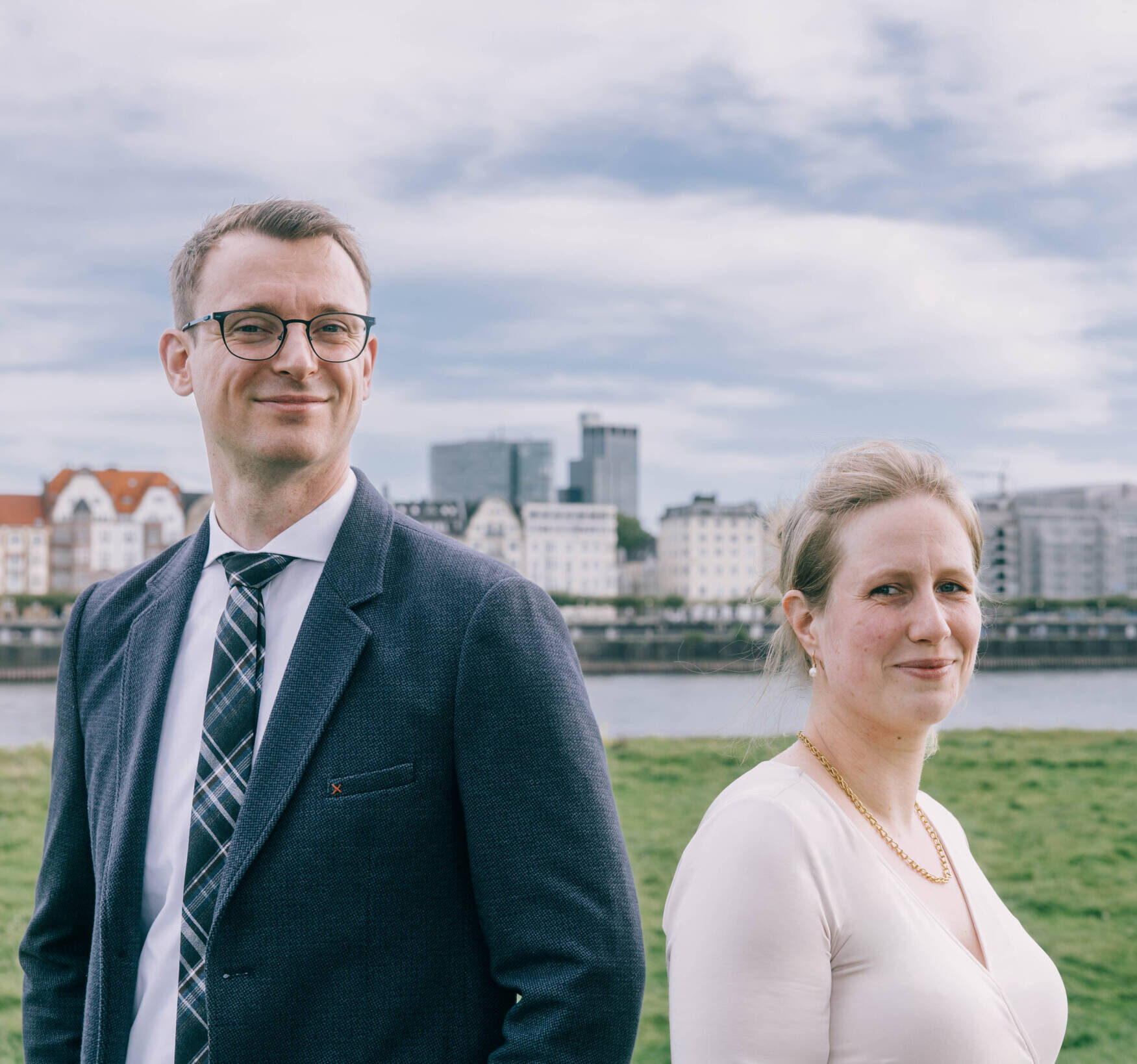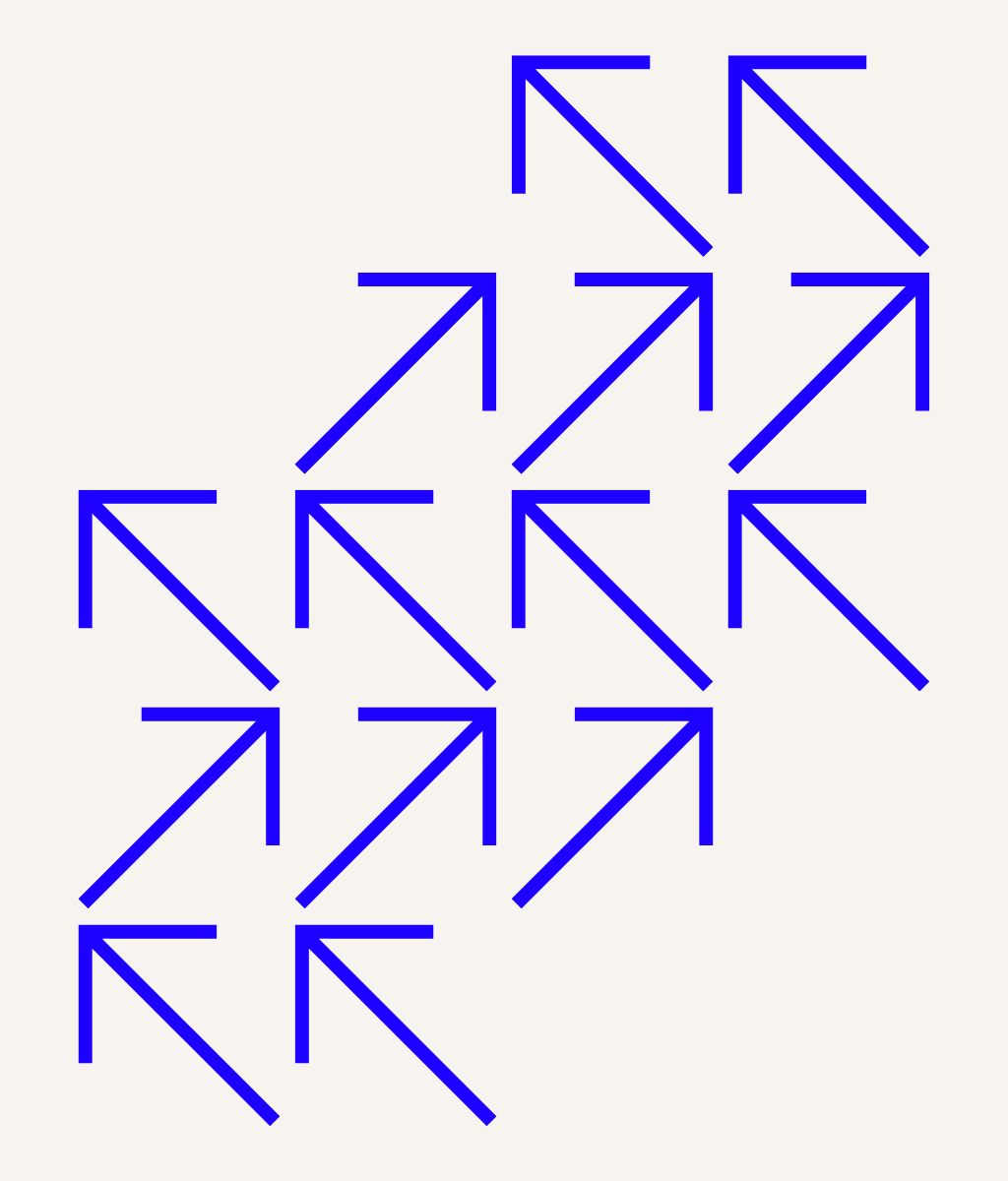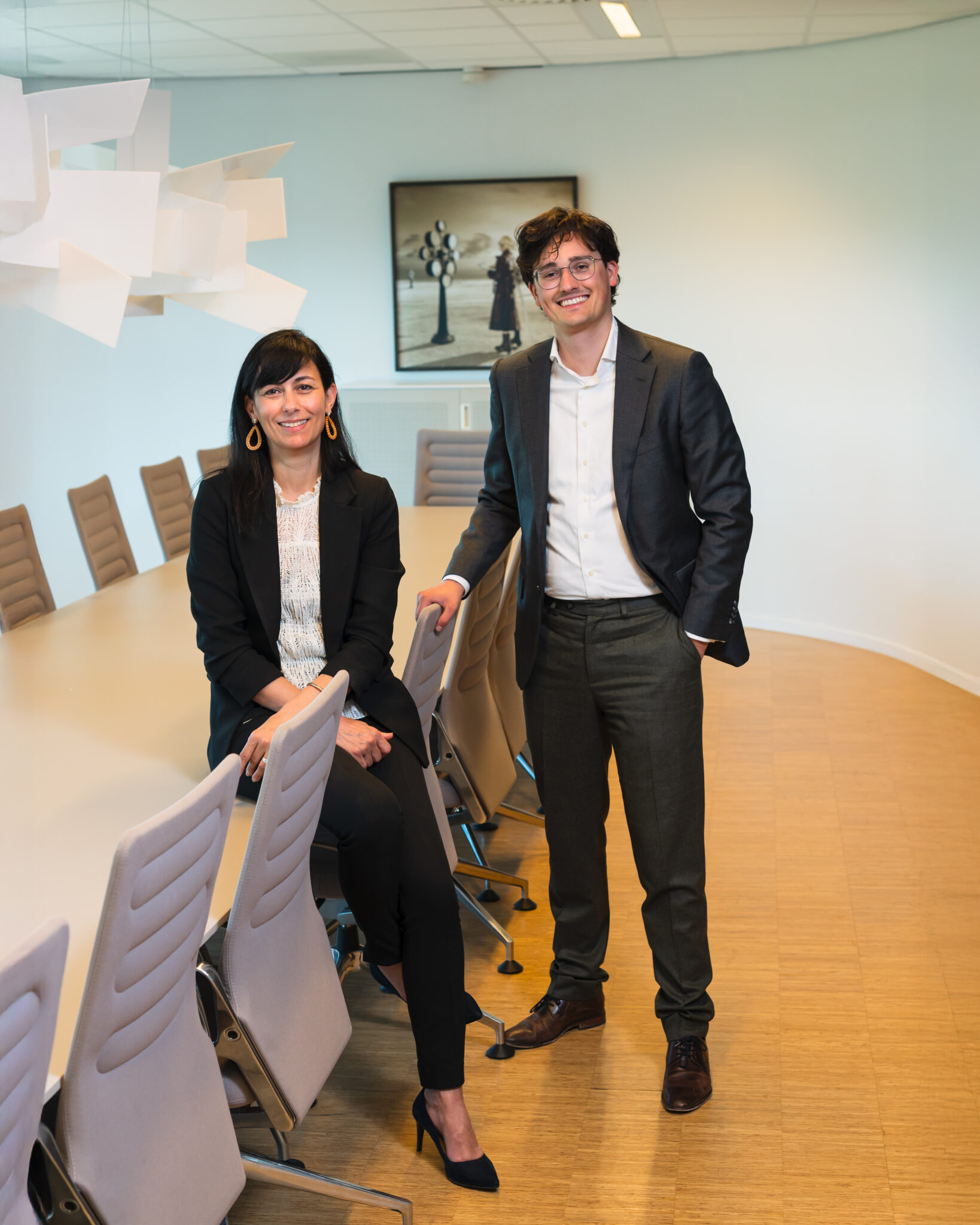What led you to become lawyers?
Anne-Marie: “For me, the path to becoming a lawyer was inevitable. I grew up in a law firm, and my love for the profession was instilled in me from an early age. I was particularly drawn to the international aspect of law, specifically private international law, because it forces you to consider multiple perspectives.”
Stephan: “I was always interested in international work, especially because of the complexity of European law. Since I couldn’t specialize well in Germany, I decided to study law in the Netherlands. After my studies, I hesitated between working for an international organization or pursuing a career in law. Ultimately, my internships made the difference – the direct client contact and in-depth legal analyses suited me.”
Why did you choose dual qualifications?
Anne-Marie: “Choosing dual qualifications was a strategic decision for me. I had been working on the German Desk for years but kept encountering barriers that I couldn’t break through without being able to fully operate in Germany myself. Whenever German law applied, I had to call in a German lawyer, even though I knew exactly what needed to be done. It felt like I wasn’t fully autonomous as a lawyer, and that frustrated me. Now, with dual qualifications, I can litigate and assist my clients from start to finish without needing to involve someone else. It makes my work more effective and enjoyable.”
Stephan: “For me, it was also a logical step. I grew up in the Netherlands as a German, so I feel connected to both countries, and I want to reflect that in my work. To be a truly good advisor, you need to know and operate in both legal systems. Otherwise, it feels like being a knight without a sword. Now I can fully assist my clients in both countries, including litigation.”
Is there a specific area of law you specialize in?
Stephan: “Our foundation is international contracting, especially commercial contracts. I also handle matters like German rental law and corporate law. We don’t do everything – quality requires focus. The interesting part of our work is constantly translating between Dutch and German law.”
Anne-Marie: “My focus is on commercial law, contracts, and liability in both countries. While our specializations sometimes overlap, we also receive other German-related cases. Thanks to our knowledge of both systems, we can quickly determine the right approach, even outside our direct field.”
What are the biggest differences between studying law in the Netherlands and Germany?
Stephan: “Legal education in Germany is intense compared to the Netherlands. In the Netherlands, you take a course, do an exam, and move on. In Germany, you learn everything at once at a high level. There’s no bachelor-master system – after five years, you take state exams covering all areas of law, followed by internships with the judiciary, prosecution, and law firms. After that, you take another round of exams, this time with more practical cases.”
Anne-Marie: “Thanks to European regulations, we were able to take the German exam as foreign lawyers, allowing us to skip one main area of law. But that didn’t make it any easier. We studied intensively for two years alongside our jobs. It was a huge challenge, but in the end, we succeeded.”
How did you prepare for the German state exam while working?
Stephan: “It was tough. We took a course that required us to study in Frankfurt for four days twelve times, with lecturers who were judges and lawyers. The amount of knowledge you need to acquire is enormous, and it takes a lot of self-discipline to do this alongside a full-time job. I studied every day for two years, often from six in the morning until late at night, even on weekends.”
Anne-Marie: “It was definitely challenging. I often studied late into the evening, in addition to my work and family life. I remember studying during my maternity leave, with practically no social life. Preparation was crucial – you can’t rely on luck or character alone. You need to be fully prepared to not only pass but to feel confident in your work as a lawyer.”
How did you start collaborating, and what are the biggest differences between you?
Stephan: “A former classmate sent me a job opening for the German Desk at Boels Zanders. We got to know each other quickly and both had a connection to Germany, but initially worked in different areas of law. Our collaboration intensified when we both pursued dual qualifications. Anne-Marie started first, and I followed shortly after. From that moment, everything fell into place.”
Anne-Marie (laughing): “The biggest difference? Stephan is German, and I’m Dutch. He’s very structured and formal, while I’m more relaxed and commercial. We complement each other well – Stephan ensures precision, and I bring a practical approach. Adapting to the situation is key – or as we often say: ‘Know your audience.’”
Can you share something about your first case together?
Anne-Marie: “It was quite an adventure. We had to litigate in a small village in eastern Germany, which involved an eight-hour journey and two overnight stays – not exactly efficient. We asked the court for a digital hearing, but they refused because our office wasn’t on German soil. In the end, we did the hearing from Stephan’s couch at home, since that was technically German territory.”
Stephan: “It was a bizarre moment, but also a good illustration of how procedures in Germany sometimes differ from the Netherlands. The German court wasn’t used to lawyers with dual qualifications, and it was fascinating to see how strictly they adhered to the rules. But in the end, we reached a good settlement and solved the issue.”
Who are the clients of the German Desk, and what types of cases do you handle?
Anne-Marie: “Our clients are mainly entrepreneurs from the Netherlands and Germany dealing with legal disputes across the border. This can involve real estate, contracts, GmbHs, or even vacation homes. We primarily work with business clients, but occasionally help individuals.”
Stephan: “Our business clients especially appreciate that we operate in both countries, which is often cheaper than hiring two lawyers. In Germany, legal fees are linked to the claim amount, which can lead to odd situations – simple cases can sometimes incur high fees, and vice versa.”
What can Dutch and German lawyers learn from each other?
Anne-Marie: “Pragmatism is something German lawyers can learn from their Dutch colleagues. In Germany, you’re required to provide comprehensive advice, often resulting in lengthy analyses. In the Netherlands, you’re more focused on answering the client’s question directly.”
Stephan: “That’s true. In Germany, the bar for lawyers is set very high in terms of liability and diligence. You must outline all risks and document them to avoid liability claims. In the Netherlands, this is less common, so lawyers are more direct and practical.”
What are your ambitions for the future of the German Desk?
Anne-Marie: “Our ambition is to grow the German Desk and continue developing ourselves. The legal landscape is changing rapidly in both countries, and staying up to date is crucial. We want to become the largest and most specialized German Desk.”
Stephan: “My ambition is to master even more areas of German law and expand our expertise. Growth is important to us, but quality always comes first.”


